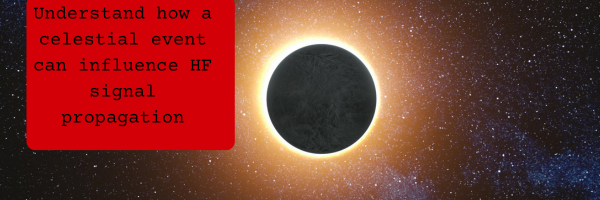
As we eagerly anticipate the upcoming solar eclipse on April 9, it’s essential to understand how this celestial event can influence HF signal propagation. A solar eclipse occurs when the moon passes between the Earth and the Sun, momentarily blocking the sun’s rays. This interruption in solar radiation can have significant effects on the Earth’s ionosphere, particularly in the altitude range of 60 to 90kms.
During a solar eclipse, the reduction in solar radiation leads to a corresponding decrease in ionization in the ionosphere. This reduction in ionization can disrupt HF signal propagation, affecting radio signals, GSP navigation systems, and shortwave communications. The sudden change in ionospheric conditions can create challenges for radio operators and listeners alike.
However, despite the potential disruptions, the solar eclipse also presents a unique opportunity for amateur radio operators and shortwave listeners. It offers a firsthand opportunity to observe and study the effects of a solar eclipse on radio wave propagation. In particular, shortwave listeners may notice improved reception of LW signals, including time signals, as discussed in our recent blog post.
We encourage listeners to share any signal reports logged during this period, as it will contribute to our collective understanding of solar eclipse effects on radio communication.
This blog post is brought to you by Garry from Tecsun Radios Australia.
With years of experience as a dedicated hobbyist, Garry is passionate about exploring the fascinating world of radio communication and sharing his insights with fellow enthusiasts.
Stay tuned for more updates and insights from Tecsun Radios Australia. Happy listening!
Best regards,
Garry from Tecsun Radios Australia



Leave a Reply
Want to join the discussion?Feel free to contribute!